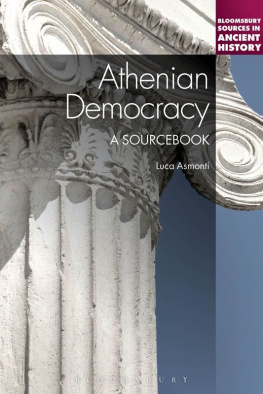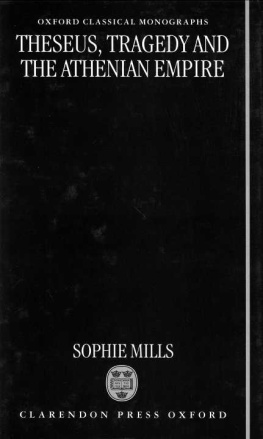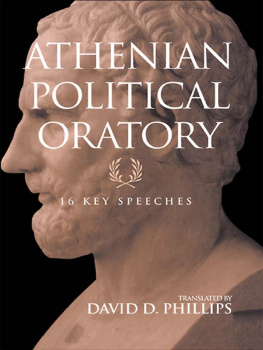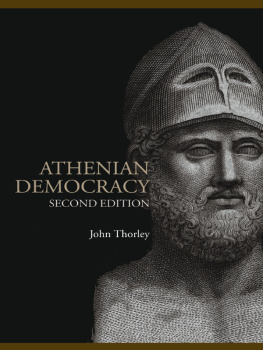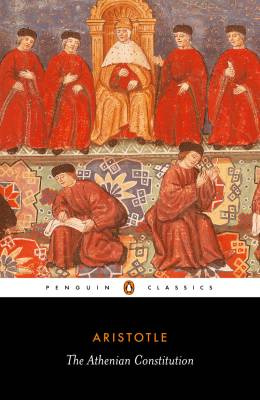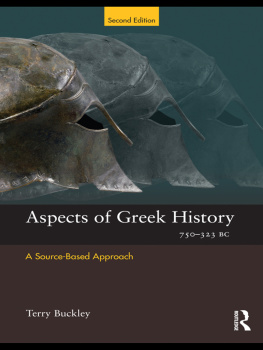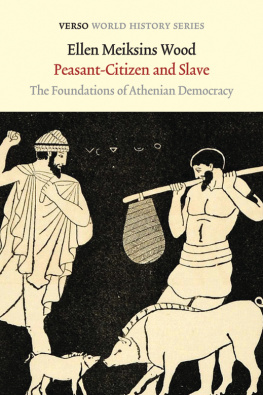Athenian Democracy: A Sourcebook
Bloomsbury Sources in Ancient History
The Bloomsbury Sources in Ancient History series presents a definitive collection of source material in translation, combined with expert contextual commentary and annotation to provide a comprehensive survey of each volumes subject. Material is drawn from literary, as well as epigraphic, legal and religious, sources. Aimed primarily at undergraduate students, the series will also be invaluable for researchers, and faculty devising and teaching courses.
Women in Ancient Rome , by Bonnie MacLachlan
Greek and Roman Sexualities: A Sourcebook , by Jennifer Larson
Athenian Democracy: A Sourcebook
Luca Asmonti
Bloomsbury Sources in Ancient History
Contents
The primary scope of this book is to introduce students of ancient history to the world of Athenian democracy and its continuing legacy in the Hellenistic and Roman ages.
The people of classical Athens considered their city to be like no other, and the democratic constitution the most extraordinary product of the uniqueness of the Athenian experience, whether they liked it or not. The Greek noun usually translated as constitution is politeia . The term derives from the same stem of polis , or not very appropriately city-state, the most typical form of civic organization of the classical world. Politeia generally refers to the form of government of a polis and its political institutions, but can also indicate its members, the body of citizens, and the right to be one of its members, citizenship. The fact that the same word signified constitution and citizenship (meant both as civic/political rights and body of citizens) is very important for understanding the political mentality of the Greeks: in a society where political participation was not a universal right, but indeed the privilege of a minority, from which women and foreign residents were excluded, not to mention slaves, the set of rules and institutions that formed the politeia -constitution represented a vital element in defining the culture and identity of the polis community. This book will analyze Athenian democracy from this wider perspective: it will consider the evidence relating to the political activity within the polis as well as the other spheres of life to investigate how the development of a system of government based on public debate and collective decision-making, albeit confined to a tiny minority, contributed to the birth of a new kind of society and, indeed, of a new kind of man. This book will therefore present a very wide range of texts, from administrative documents to private letters, from legal speeches to epic poems.
All the translations are my own; the most common proper names and other words have been transliterated in their Latinized or Anglicized version. All the dates in this book are BC, unless otherwise stated.
This book is dedicated to my sister Silvia.
The University of Queensland, June 2014
Ancient authors
| Aes. | Aeschines |
| Ag. Tim | Against Timarchus |
| Aesch. | Aeschylus |
| Eum. | Eumenides |
| Supp. | Suppliant Women |
| And. | Andocides |
| Ag. Ctes. | Against Ctesiphon |
| Myst. | On the Mysteries |
| App. | Appian |
| Myth. | The Mythridatic Wars |
| Ar. | Aristophanes |
| Lys. | Lysistrata |
| Arist. | Aristotle |
| Ath. Const. | Constitution of the Athenians |
| Pol. | Politics |
| Ath. | Athenaeus |
| Deip. | Deipnosophistae |
| Cic. | Cicero |
| Att. | Letters to Atticus |
| Dem. | Demosthenes |
| Ag. Ev. Mnes. | Against Evergus and Mnesibulus |
| Ag. Lep. | Against Leptines |
| Ag. Nea. | Against Neaera |
| Ag. Tim. | Against Timotheus |
| Alex. | On the Treaty with Alexander |
| Answer Alex. | Answer to Alexander |
| Answer Phil. | Answer to Philip |
| Crown | On the Crown |
| Emb. | On the False Embassy |
| On. Org. | On Organization |
| Phil. III | Third Philippic |
| Rhod. | For the Liberty of the Rhodians |
| Diod. | Diodorus Siculus |
| Dion. | Dionysius of Halicarnassus |
| Hdt. | Herodotus |
| Hist. Aug. | Historia Augusta |
| Hom. | Homer |
| Il. | Iliad |
| Od. | Odyssey |
| Hyp. | Hyperides |
| Ag. Ath. | Against Athenogenes |
| Fun. Speech | Funerary Speech |
| Isoc. | Isocrates |
| Areop. | Areopagiticus |
| Hel. | Helen |
| Peace | On the Peace |
| Lyc. | Lycurgus |
| Ag. Leoc. | Against Leocrates |
| Lys. | Lysias |
| Ag. Nic. | Against Nicomachus |
| Aristoph. | On the Property of Aristophanes |
| Corr. | Defence against a change of corruption |
| Paus. | Pausanias |
| Pl. | Plato |
| Ap. Soc. | Apology of Socrates |
| Gor. | Gorgias |
| Hipp. | Hipparchus |
| Lett. | Letters |
| Plin. | Pliny the Elder |
| Nat. Hist. | Natural History |
| Plut. | Plutarch |
| Arist. | Life of Aristides |
| Demet. | Life of Demetrius |
| Per. | Life of Pericles |
| Sol. | Life of Solon |
| Sull. | Life of Sulla |
| Them. | Life of Themistocles |
| Thes. | Life of Theseus |
| Pol. | Polybius |
| Poll. | Pollux |
| PS. Ap. | Pseudo-Apollodorus |
| Ps. Xen. | Pseudo Xenophon |
| Ath. Const. | Constitution of the Athenians |
| Stob. | Stobaeus |
| Tac. | Tacitus |
| Or. | Dialogue on Oratory |
| Theoph. | Theophrastus |
| Char. | Characters |
| Thuc. | Thucydides |
| Xen. | Xenophon |
| Hell. | Hellenica |
| Sp. Const. | Constitution of the Spartans |
| Symp. | Symposium |
Modern texts and collections
| AAntHung | Acta Antiqua Academiae Scientiarum Hungaricae |
| ABSA | The Annual of the British School at Athens |
| AC | LAntiquit classique |
| Agora Inv. | Agora Inventory |
| AgoraPicBk | Excavations of the Athenian Agora Picture Book , Princeton, 1958 |
| AH | Ancient History |
| AJA | American Journal of Archaeology |
| AJAH | American Journal of Ancient History |
| AncSoc | Ancient Society |
| AncW | Ancient World |
| APRS | The American Political Science Review |
| ATL | B. D. Meritt, H. T. Wade-Gery, M. F. McGregor, The Athenian Tribute Lists , Cambridge (MA) and Princeton, 193953 |
Next page
